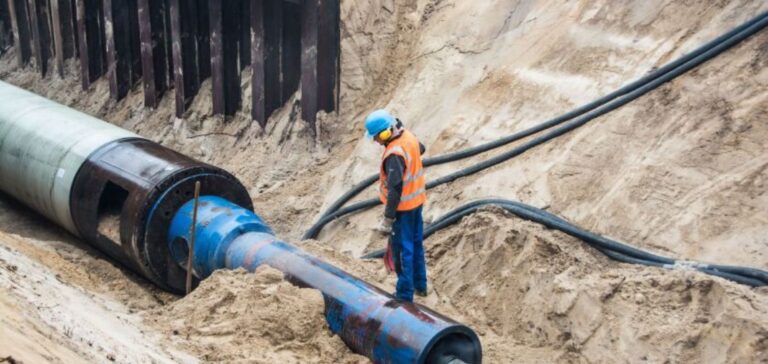EnBW, a major player in Germany’s energy sector, is investing 1 billion euros in the development of the country’s hydrogen transport network.
This network, designed to transport locally produced and imported hydrogen, is essential for reducing Germany’s dependence on fossil fuels.
The industry association FNB Gas, representing gas network operators, has submitted a national planning application to the Bundesnetzagentur.
The project calls for the construction of 9,666 kilometers of pipeline by 2032, at an estimated total cost of 19.7 billion euros.
These pipelines will transport 278 terawatt-hours (TWh) of hydrogen per year, equivalent to around a third of Germany’s gas consumption in 2021.
Network objectives and planning
The German energy regulator, Bundesnetzagentur, has received FNB Gas’ detailed plans, which include the conversion of existing natural gas pipelines to hydrogen pipelines as well as the construction of new infrastructure.
Regulatory approval is expected in September 2024, with work scheduled to start in 2025.
Germany is thus seeking to position itself as a leader in Europe’s hydrogen economy.
Germany’s limited wind and solar energy resources force the country to import around 70% of its future hydrogen from regions capable of producing it in abundance and at low cost.
This project for a national hydrogen network is therefore part of a broader strategy for energy transition and decarbonizing the economy.
Financing and Outlook
The financing of this infrastructure is based on amortization accounts that will spread costs over several generations.
Network operators will invest from their own balance sheets and recoup their expenditure primarily via network fees, with the possibility of attracting investment from the capital markets.
Around 60% of the infrastructure projects involve converting existing natural gas pipelines to carry hydrogen, while new pipelines will also be built.
EnBW, together with its subsidiaries VNG and terranets, is planning initial investments to connect regional transmission lines in eastern and south-western Germany.
These investments will then extend beyond these regions, to create an integrated and efficient network for hydrogen transport.
Impact on the Economy and the Environment
Hydrogen, when produced by electrolysis using renewable electricity, represents a clean alternative to fossil fuels.
Germany, with its limited wind and solar energy resources, plans to import around 70% of its future hydrogen from regions where it can be produced in abundance and at low cost.
The hydrogen grid project is an integral part of Germany’s efforts to meet its climate targets and reduce its dependence on fossil fuels, while promoting the transition to a low-carbon economy.
The initiative also offers new market opportunities for investors and companies in the energy sector.
EnBW and its subsidiaries are playing a key role in this project, with plans to convert existing pipelines and build new infrastructure to create an efficient, integrated hydrogen transport network.
Berlin Gasag’s participation, with the conversion of 60 kilometers of the city’s gas pipelines to hydrogen, illustrates the national commitment to this transition.
This ambitious project represents a significant step towards decarbonizing the German economy.
The construction of the hydrogen network, scheduled to start in 2025, is a crucial step in this transition.
EnBW’s investment in this national project underlines the strategic importance of hydrogen in Germany’s energy future.






















